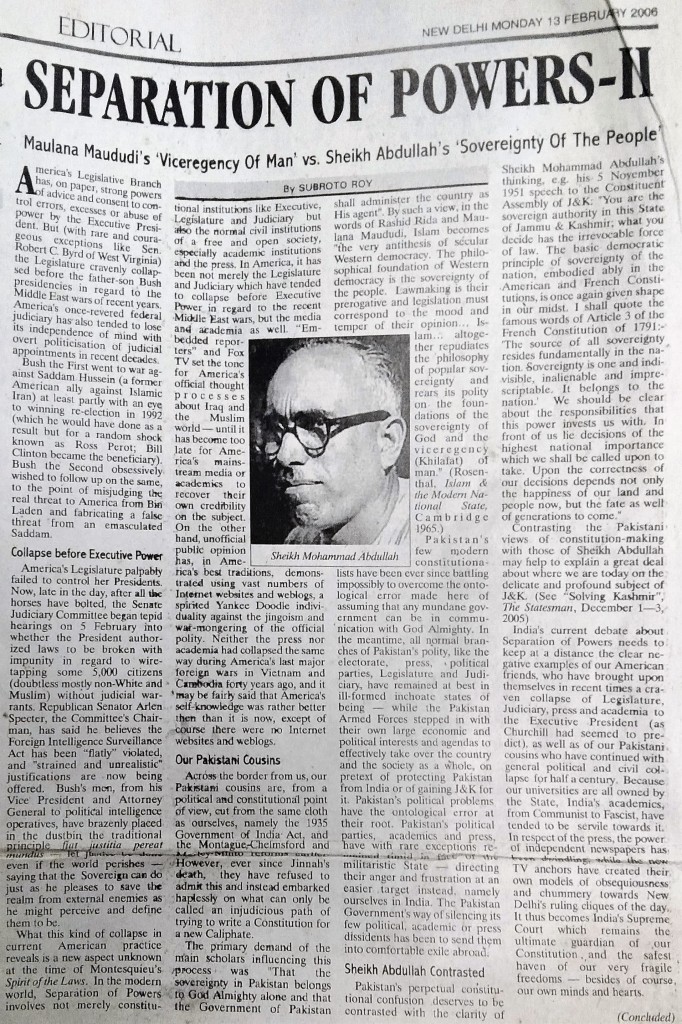Justice & Afzal
first published in The Sunday Statesman Editorial Page
October 14, 2006
There is a difference between law and equity (or natural justice). The power of pardon is an equitable power. Commuting a death-sentence is a partial pardon
By SUBROTO ROY




